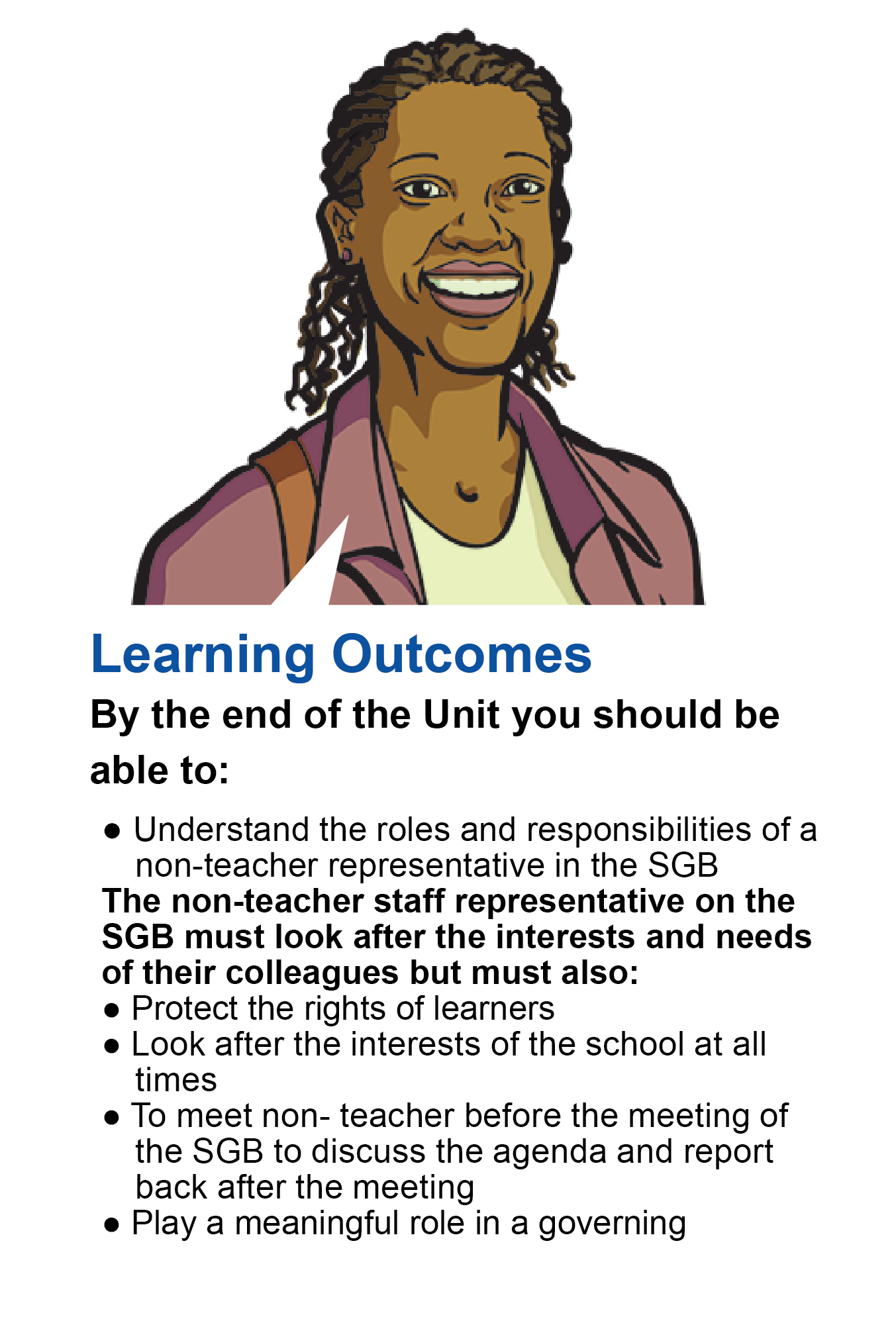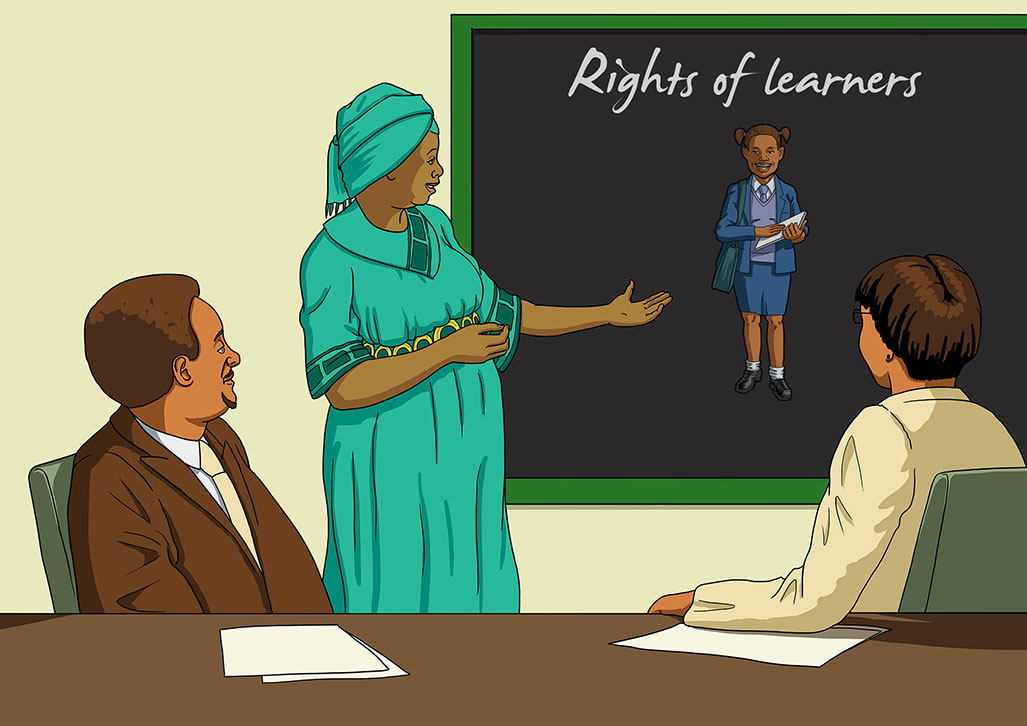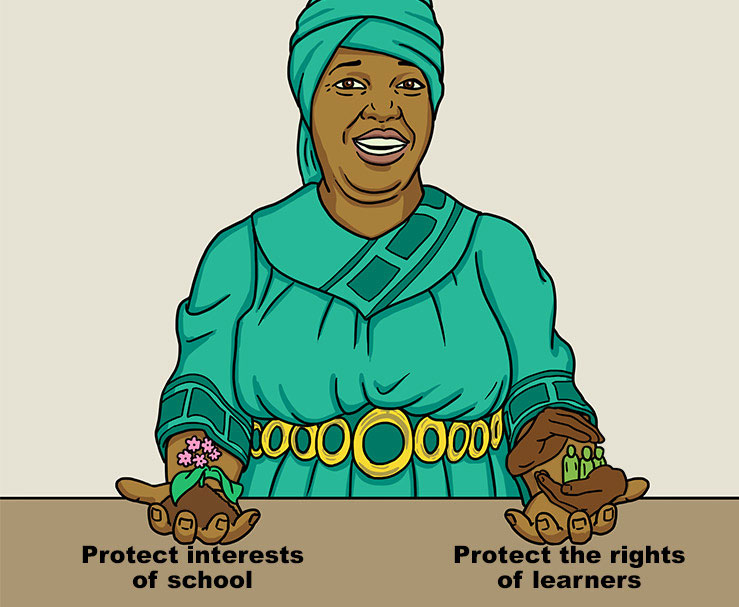FREQUENTLY ASKED QUESTIONS FOR ROLES AND RESPONSIBILITIES OF SGBs
1. What is the difference between management and governance?
Answer: Management is responsible for the day to day operations of the school and
Governance plays an oversight role.
(South African Schools Act 84 of 1996 as amended Section 16(1) states that: “The
Governance of every public school is vested in its governing body.”
Section 16(2) indicates that: “A governing body stands in a position of trust towards the
school.”
Section 16(3) explains that: “The professional management of a public school must be
undertaken by the principal under the authority of the Head of Department”
Governance plays an oversight role.
(South African Schools Act 84 of 1996 as amended Section 16(1) states that: “The
Governance of every public school is vested in its governing body.”
Section 16(2) indicates that: “A governing body stands in a position of trust towards the
school.”
Section 16(3) explains that: “The professional management of a public school must be
undertaken by the principal under the authority of the Head of Department”
2. Must the Secretary be the Administrator or Teacher Component?
Answer: A governing body must from amongst its members elect office bearers who must include at least a chairperson, a treasurer, and a secretary: SASA Section 29 (1)
3. Must the Treasurer be a parent?
Answer: A governing body must from amongst its members elect office bearers who must include at least a chairperson, a treasurer, and a secretary: SASA Section 29 (1) however Financial Regulation 2014 Section 6(2) states that the Treasurer should preferably be a parent member of a Governing Body.
4. Who is eligible to be a signatory in the SGB?
Answer: The Chairperson, Treasurer and principal even though the South African Schools Act is silent about it. It is just a recommendation which may vary from school to school depending on the dynamics of the school. In other schools they even have a bookkeeper as one of the signatories.
5. Is the principal allowed to call the parents meeting?
Answer: Any parents meeting that the Principal convene must be with the knowledge of
the SGB (General Notice 1457 0f 1997 - PG 354 of May 1997 with effect from 6 May 1997, Chapter 5)
the SGB (General Notice 1457 0f 1997 - PG 354 of May 1997 with effect from 6 May 1997, Chapter 5)
6. Is the SGB allowed to discipline the educator for any misconduct?
Answer: The responsibility of the SGB in terms of Educator disciplinary issues go as far as Section 39(f) (To inquire into written complaints about any member of staff employed at the school, to refer the complaint, together with its findings, to the Head of Department, and to recommend that the Department institute inefficiency or misconduct procedures related to persons employed at the school)
7. Is the SGB allowed to develop and review any policies without involving other stakeholders?
Answer: Yes they can however the involvement of stakeholders is important as it will assist with the skills and expertise that may not be available in the SGB. (WSE - In relation to the nine focus areas)
8. Is the principal allowed to present the school financial report in the general meeting?
Answer: Yes; only if delegated by the School Governing Body and such a decision is minuted.
9. Is the teacher rep in the SGB allowed to be the chairperson of the SGB?
Answer: No. Only the parent member of a Governing Body who is not employed at the Public School may serve as a chairperson of the Governing Body: South African Schools Act Section 29 (2)
10. Who prepares the budget?
Answer: A governing body of a Public School must prepare a budget each year according to prescription determined by the MEC in a Provincial Gazette which shows the estimated income and expenditure of the School for the following financial year: The South African Schools Act Section 38 (1)
11. Who should chair the SGB meetings?
Answer: It is the responsibility of the Chairperson of the school governing body, who is a parent, to chair the SGB meetings: South African Schools Act Section 29 (2)
12. According to legislation, does the portfolio of the Deputy Chairperson and assistant Secretary exists?
Answer: A Governing body must from amongst its members elect office –bearers, who must include at least a Chairperson, a Treasurer and a Secretary. The duties for all portfolios should be stipulated in the Policy: South African Schools Act Section 29 (1)






